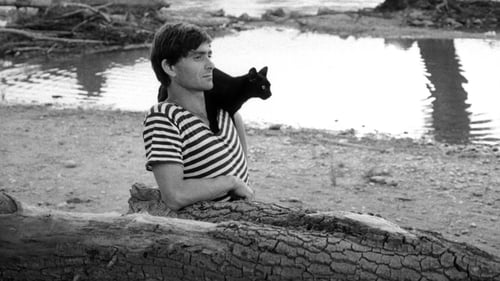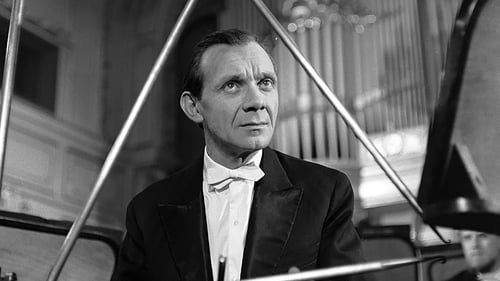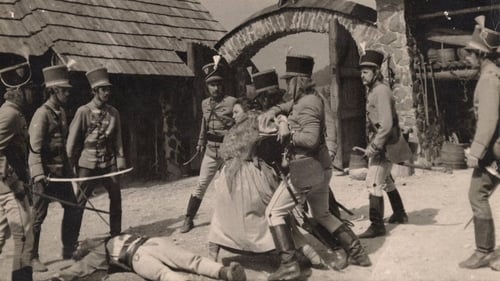
Costumer
In his feature debut, Dneska přišel nový kluk (A New Boy Started Today) from 1981, the director Vladimír Drha set the tone for a number of Czech films, which critically depicted the state of society from the perspective of young protagonists. Although, Drha primarily found scope for his work in television, he returned to the world of a “working youth” in his second film Mezek (The Mulish Victor, 1985) – albeit following him from the point of view of an educator. NFA.CZ

Costume Design

Costumer

Costumer
The film is a historic parable about the topicality of revolution. 1514. The peasants' uprising is over, Dózsa has been arrested. Werbőczy tries to get the imprisoned peasant leader deny the revolution and offers him the lives of his people in exchange.

Costume Design

Costumer
A tragic story of two young people who are in the precious moments of first emotional flare deeply disappointed by the shallow feelings of their parents as well as their relatives and friends.

Costumer

Costumer
A man changes his behavior according to the term of the year.

Costumer

Costumer

Costumer
A film adaptation of the novelette of the same title written by Dominik Tatarka depicts the life of a young generation of artists that was formed in Slovakia during the war. Anabella, a young and beautiful girl meets a group of artists. She awakens their erotic desires but also pure feelings of love; she becomes the object of their secret fantasies as well as their artistic inspiration. And it seems that the boundaries between reality and fantasy suddenly cease to exist.

Lead Costumer

Costumer
In this bitingly satirical film Peter Slovan, a continuous source of trouble for the film functionaries of the socialist Slovakia, tackles an evergreen topic – the corruptive effects of power. Barnabáš Kos, a triangle player at a symphonic orchestra, is suddenly promoted to serve as the head of the said institution, even though both he and his superiors deem him completely unfit for the task. Encouraged in equal parts by this unexpected recognition and the servile praise of his colleagues, Kos’s modesty starts to gradually vanish. The erstwhile bashful and aloof percussionist quickly becomes aware of the advantages of his new office, and begins to realise his increasingly ludicrous artistic ambitions. Ultimately, the submissive marionette turns into a source of public humiliation, and his astonishing career finds an abrupt end. Orchestra serves here as a microcosm that grotesquely reflects the absurd and tragicomic mechanisms of the paranoid apparatus of power.

Costumer
The Organ is a drama set in the times of the wartime Slovak State. A young Polish deserter and gifted organist finds shelter from the fascists in a Slovak Franciscan monastery. He gets into a conflict with the local organist and choir leader, a man limited in his world views and spiritual values. The collision of talent and beauty with pettiness and closed-mindedness leads to envy and ill will, which draw young Felix away from his temporary hiding place and back to the dangers of war.

Costumer
A movie built up of three stories about life in a small Slovak town. The Prosecutor: the district attorney is a jazz orchestra soloist at the same time and that is much disliked by the local provincial society. The Defender: is about a young doctor's relation to his patient, who is open about his reactionary opinions. The Judge: it is only after long years that the old judge realizes that his own marriage is in jeopardy.

Costumer
This film is one of the most popular pictures of Slovak cinema and relates the story about the legendary folk hero and brigand Juro Jánošík [1688-1713] and the social situation in Slovakia of the late 17th and early 18th centuries. The first part talks about Jánošík's childhood, studies and return to his native village. In the second part Jánošík leaves for the hills, where he organizes his band of brigands and starts an anti-feudal resistance. The film concludes with Jánošík's execution.

Costumer

Costumer

Costumer

Costume Design

Costumer
Drama about the rebellion of the Trencín Infantry Regiment against its superior officers in the Serbian city of Kragujevac, at the end of the First World War. It was the biggest and deadliest rebellion in the Austro-Hungarian army.

Costumer







